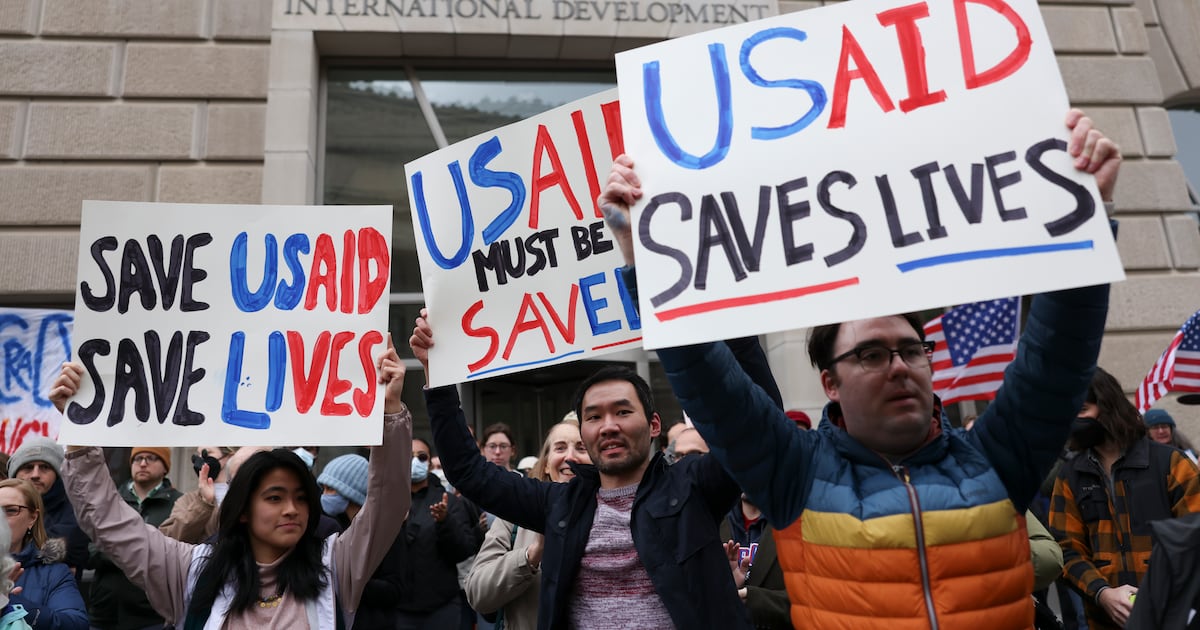World
U.S. Opts to Destroy $9.7 Million in Contraceptives Instead of Aid

The U.S. government has decided to destroy nearly $9.7 million worth of contraceptives rather than send them to women in need abroad. This decision, confirmed by a spokesperson from the State Department, is expected to cost taxpayers approximately $167,000. The contraceptives, primarily long-acting methods such as intrauterine devices (IUDs) and birth control implants, were reportedly intended for distribution in regions including Africa.
According to two senior congressional aides, who visited a warehouse in Belgium housing the contraceptives, the destruction was anticipated to occur by the end of July 2025. The exact timing of the destruction remains unclear. Senator Jeanne Shaheen, a Democrat from New Hampshire, criticized the move, stating, “It is unacceptable that the State Department would move forward with the destruction of more than $9 million in taxpayer-funded family planning commodities purchased to support women in crisis settings, including war zones and refugee camps.” Alongside Senator Brian Schatz of Hawaii, Shaheen has introduced legislation aimed at halting the destruction of these vital resources.
The State Department’s rationale for destroying the contraceptives is rooted in the inability to sell them to “eligible buyers,” a situation influenced by U.S. laws that restrict aid to organizations providing abortion services or counselling. The spokesperson indicated that most of these contraceptives have less than 70 percent of their shelf life remaining. However, the congressional aides noted that the earliest expiration date observed on the contraceptives was not until 2027, and approximately two-thirds did not require USAID rebranding.
This decision reflects broader changes under the Trump administration, which has significantly reduced the operations of the U.S. Agency for International Development (USAID), the largest global funding agency for humanitarian aid. Following substantial program cuts, Senator Marco Rubio announced in June 2025 that USAID’s international workforce would be dissolved, with foreign assistance programs shifting to the State Department. According to a recent study published in the journal The Lancet, these funding cuts could result in more than 14 million additional deaths by 2030, with a disproportionate impact on children.
Sarah Shaw, associate director of advocacy at MSI Reproductive Choices, a global family planning organization, emphasized the dire consequences of the destruction. “If you have an unintended pregnancy and you end up having to seek unsafe abortion, it’s quite likely that you will die,” she stated. Shaw criticized the destruction of the contraceptives, describing the situation as “egregious” given the widespread need.
Despite efforts to purchase the contraceptives from the U.S. government, Shaw reported that MSI was unable to afford the full price, especially considering additional transport costs and the approaching expiration dates. The State Department did not address this specific allegation but noted that MSI provides abortions, which may have disqualified them as a buyer under existing regulations.
An internal survey conducted by MSI revealed that programs in ten countries, including the Democratic Republic of Congo and Mali, expect to face stock shortages of at least one contraceptive method within the coming month. Shaw expressed concern that the surplus contraceptives would be incinerated rather than distributed where they are badly needed.
The destruction of these contraceptives illustrates the dismantling of a once-robust system that provided essential support to women and families globally. Shaw highlighted the vital role of USAID funding in maintaining the supply chain for family planning aid, noting that without it, many logistical operations are now stalled. In Mali, for instance, USAID funding was used for gas to transport contraceptives, leaving many vehicles unable to operate and causing delays in distribution.
The situation is not isolated to contraceptives. Reports indicate that nearly 500 metric tons of emergency food aid are set to expire and be destroyed instead of feeding approximately 1.5 million children in Afghanistan and Pakistan. Additionally, almost 800,000 Mpox vaccines intended for Africa have also become unusable due to expiration concerns.
The impending cuts to foreign aid are expected to deepen, with Congress recently passing a bill to rescind nearly $8 billion earmarked for international assistance. Shaw poignantly summarized the broader implications: “It’s not just about an empty shelf. It’s about unfulfilled potential. It’s about a girl having to drop out of school. It’s about someone having to seek an unsafe abortion and risking their lives.”
-

 Top Stories2 months ago
Top Stories2 months agoTributes Surge for 9-Year-Old Leon Briody After Cancer Battle
-

 Entertainment3 months ago
Entertainment3 months agoAimee Osbourne Joins Family for Emotional Tribute to Ozzy
-

 Politics3 months ago
Politics3 months agoDanny Healy-Rae Considers Complaint After Altercation with Garda
-

 Top Stories3 months ago
Top Stories3 months agoIreland Enjoys Summer Heat as Hurricane Erin Approaches Atlantic
-

 World4 months ago
World4 months agoHawaii Commemorates 80 Years Since Hiroshima Bombing with Ceremony
-

 Top Stories2 months ago
Top Stories2 months agoNewcastle West Woman Patricia Foley Found Safe After Urgent Search
-

 Top Stories4 months ago
Top Stories4 months agoFianna Fáil TDs Urgently Consider Maire Geoghegan-Quinn for Presidency
-

 World4 months ago
World4 months agoGaza Aid Distribution Tragedy: 20 Killed Amid Ongoing Violence
-

 World4 months ago
World4 months agoCouple Convicted of Murdering Two-Year-Old Grandson in Wales
-

 Top Stories3 months ago
Top Stories3 months agoClimbing Errigal: A Must-Do Summer Adventure in Donegal
-

 Top Stories3 months ago
Top Stories3 months agoHike Donegal’s Errigal Mountain NOW for Unforgettable Summer Views
-

 World4 months ago
World4 months agoAristocrat Constance Marten and Partner Convicted of Infant Murder









